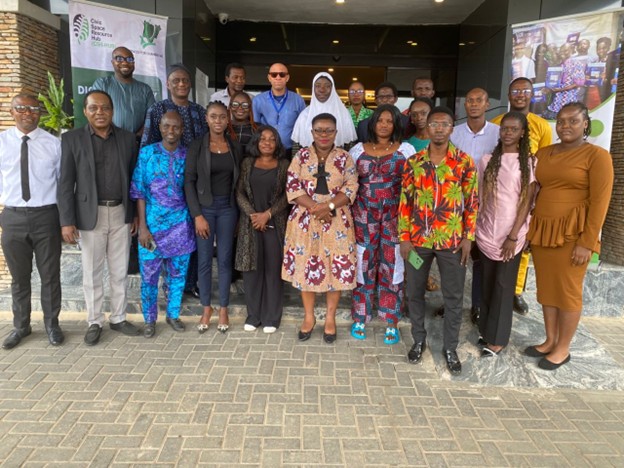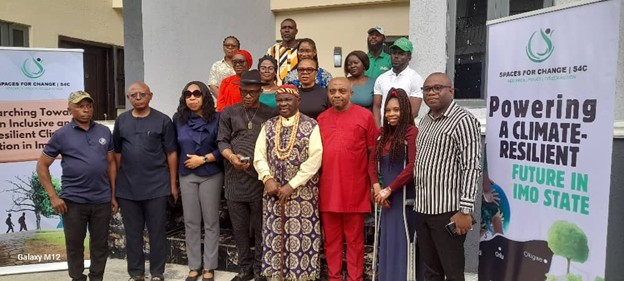By Shoremekun Saheed Ololade
Together with members of the Spaces for Change (S4C) network, I visited Ikotun Senior High School on August 22, 2012, to formally launch a complaint to the school authorities regarding an incident involving students of the school, which I witnessed on August 14, 2012. On that day, I saw students of that school, using tipex fluid to change the grades on their report cards.
With me were Victoria Ibezim-Ohaeri, the executive director of Spaces for Change, Chris Xrix Ero; Gabriel Ogunbanwo and Don Abiodun Odedeyi, who are also members of S4C network.
Holiday coaching lessons for senior secondary school students were in progress when we arrived. The principal of the school (Mrs Awosiyan) was not on seat, but we were fortunate to meet the Vice- principal, Mrs Adebayo. We quickly introduced ourselves and our mission to the school, and then handed over our complaint letter to her, which she declined to acknowledge.
The vice principal admitted that the school authorities were much aware of such nefarious activities among secondary school students across Lagos State (not only her school), as they have gained notoriety for such acts. Consequently, the school retains duplicate copies of all results containing the actual grades, as a strategy for uncovering the rampant acts of misconduct by the students. Usually, no punishment, nor deterrence measures are employed to prevent recurrence, the reason being that students with poor grades – whether or not they tampered with their grades – will eventually repeat classes or withdraw from school as the case may be.
“Parents routinely come to the school to plead for more marks to be added to their wards who did not meet the promotion cut-off-points”, she lamented. There are also cases where students have altered their results with assistance from some teachers, in the name of ‘help’. These teachers then attempt to defend the altered results, even when the altered contents substantially differ from copies retained by the school authorities. That unholy collaboration with teachers further emboldens the students to such a level that they (students) absolutely see nothing wrong with what they are doing, the vice principal disclosed.
In light of the shocking discovery, the S4C team inquired about the measures the school takes to check or punish indicted teachers. It seemed that no concrete steps are taken beyond relieving them of the responsibility to mark scripts and prepare results. The school authorities also appear overwhelmed by the regularity of exam malpractices among students, and teachers’ complicity in such activities. Outraged by the kid gloves with which such serious issues were being handled, our team mounted pressure on the school authorities to ensure that this particular incident is investigated, and the perpetrators identified and disciplined. Following an intense debate on the merits of adopting concerted measures to instill discipline and strong values in the students, the VP promised to take action immediately a new session resumes in September. The authorities also accepted S4C’s offer to facilitate free leadership seminars and youth empowerment initiatives to students of the school.
Our observations could be summarized as follows:
1. No clear punitive measures are taken against erring students.
2. Indicted teachers do not face disciplinary procedures.
3. The high number of students in the school (about 2,000) makes control and student coordination almost impossible
4. There is a strong likelihood of high failure rates by students owing to the new “Fashola Rule” that requires that all “students must make six credits, including Mathematics and English”, in order to be promoted to the next class.
The S4C team left the school premises with an emphatic message:
“Education is about discipline”
2. Indicted teachers do not face disciplinary procedures.
3. The high number of students in the school (about 2,000) makes control and student coordination almost impossible
4. There is a strong likelihood of high failure rates by students owing to the new “Fashola Rule” that requires that all “students must make six credits, including Mathematics and English”, in order to be promoted to the next class.
We shall continue to monitor progress, and assess the new measures that may be introduced the school authorities to checkmate the students’ excesses.
 |
| At the Ikotun Senior High School, Ikotun, Lagos. From right to left: Victoria Ibezim-Ohaeri; Chris Xrix Ero; Gabriel Ogunbanwo and Don Abiodun Odedeyi. Saheed Shoremekun took the picture. |




